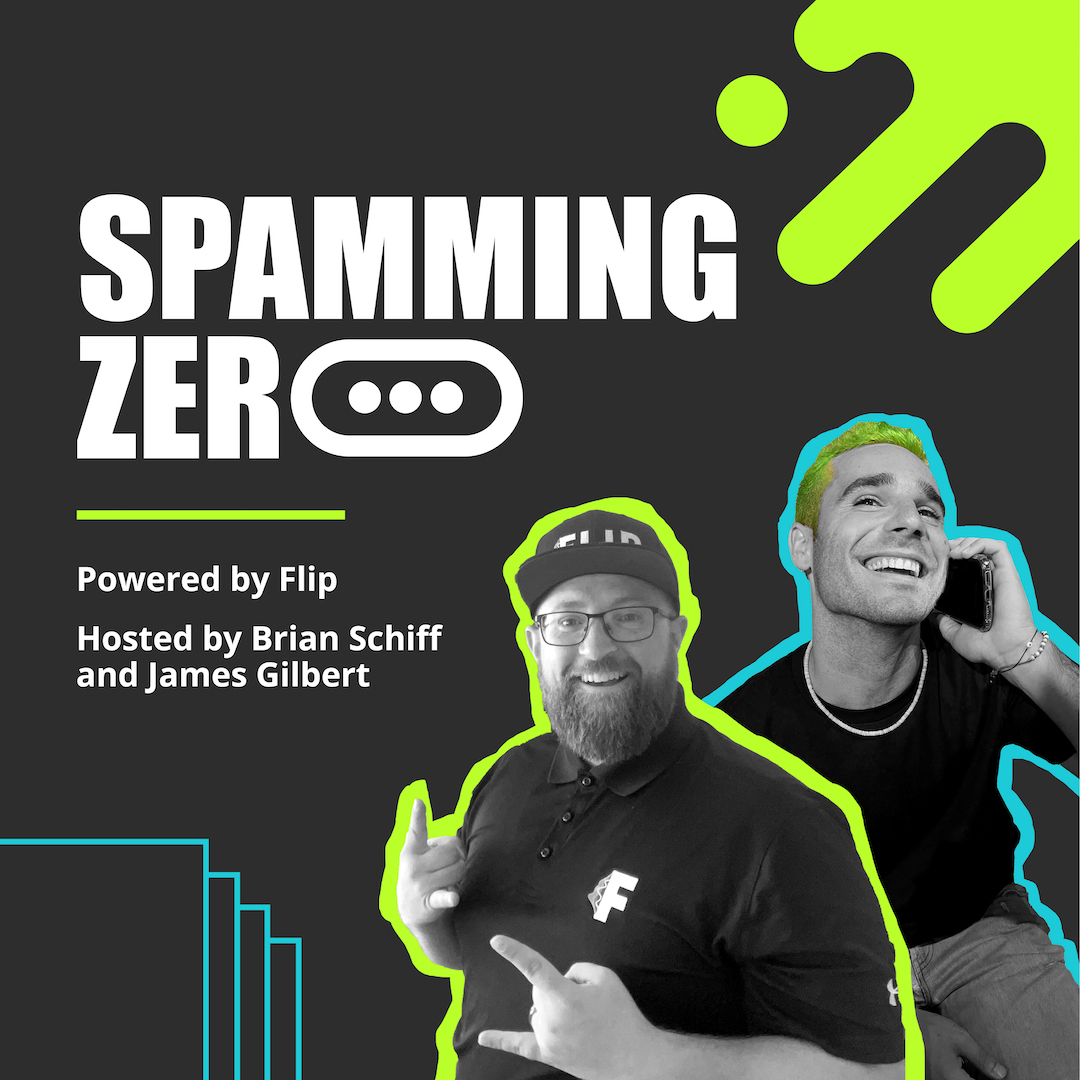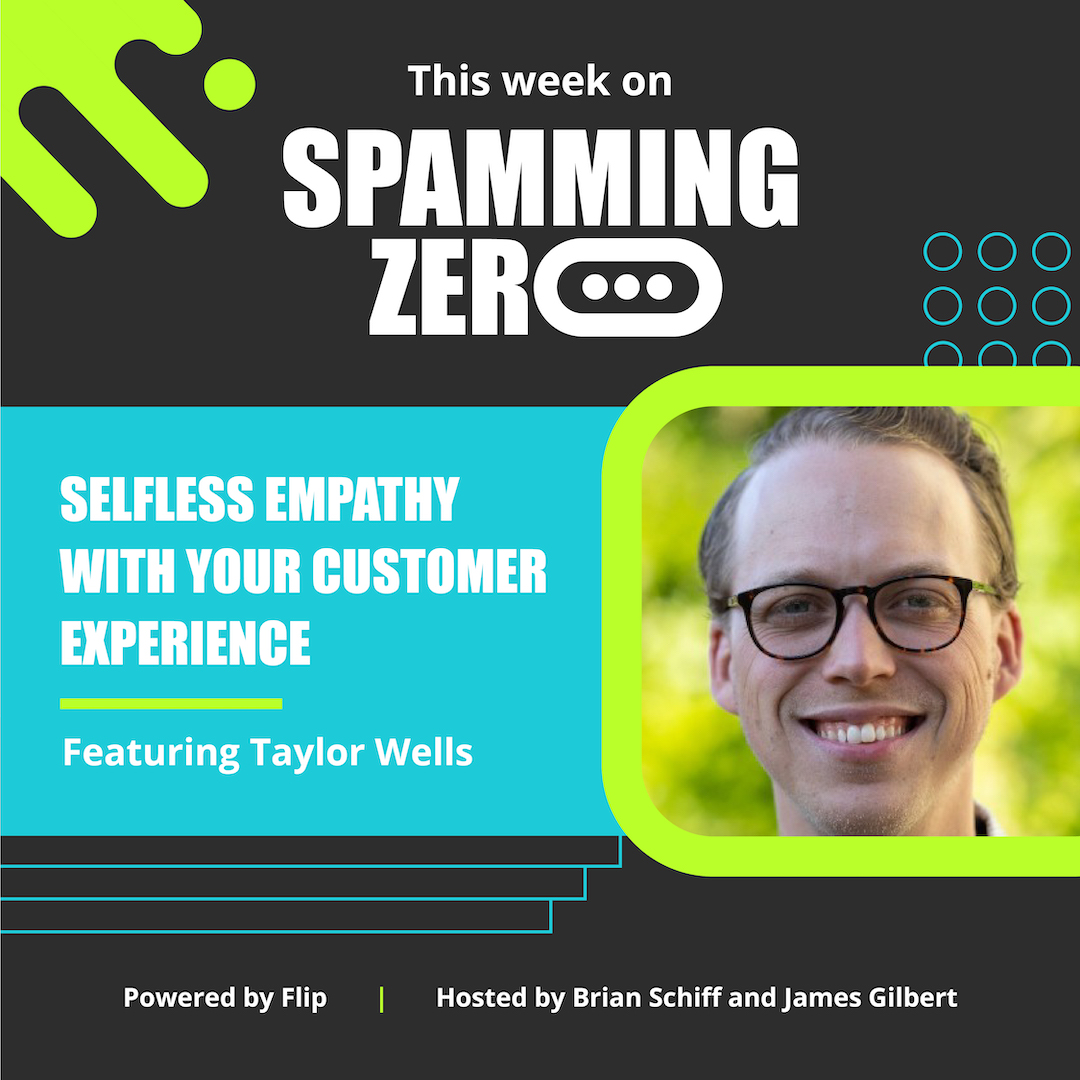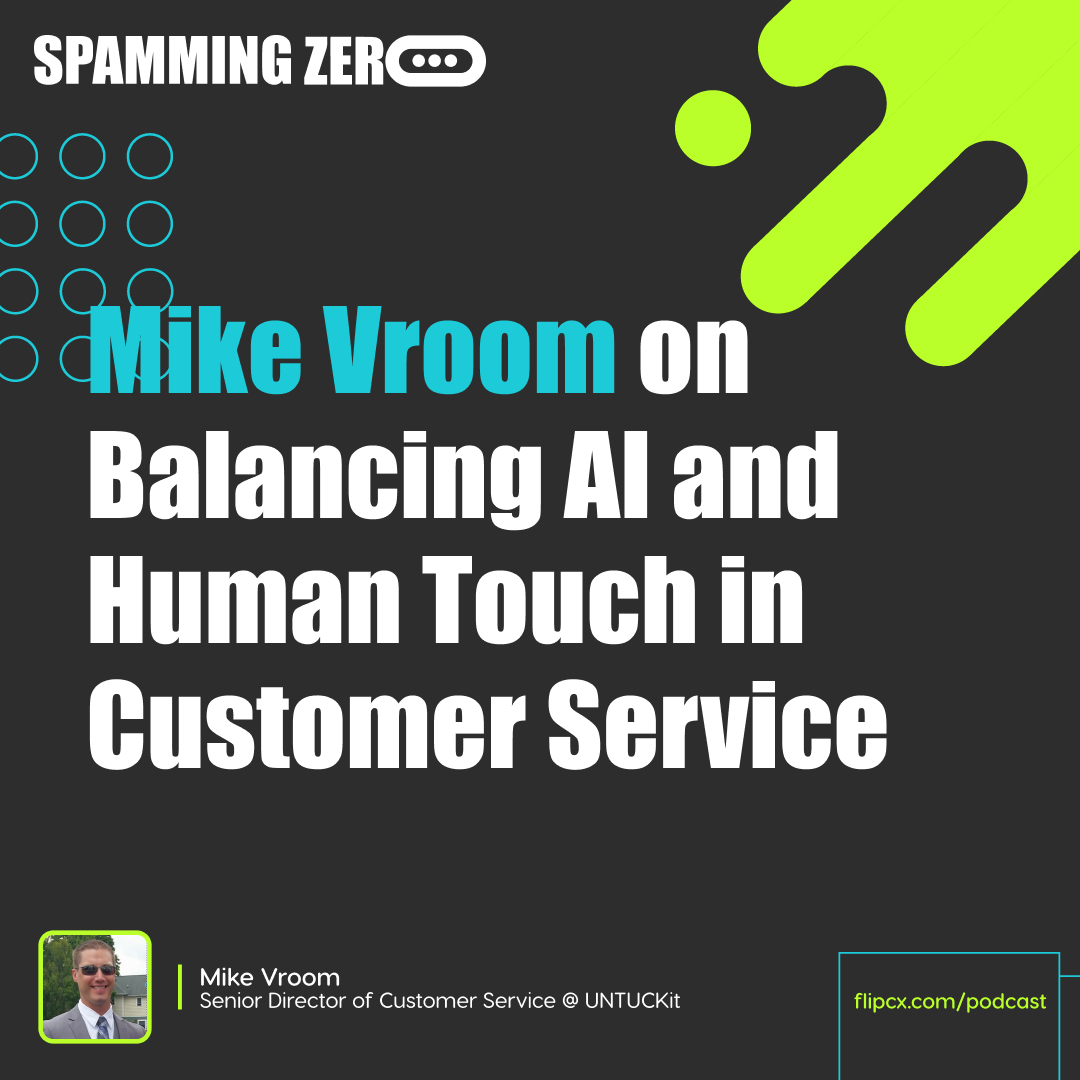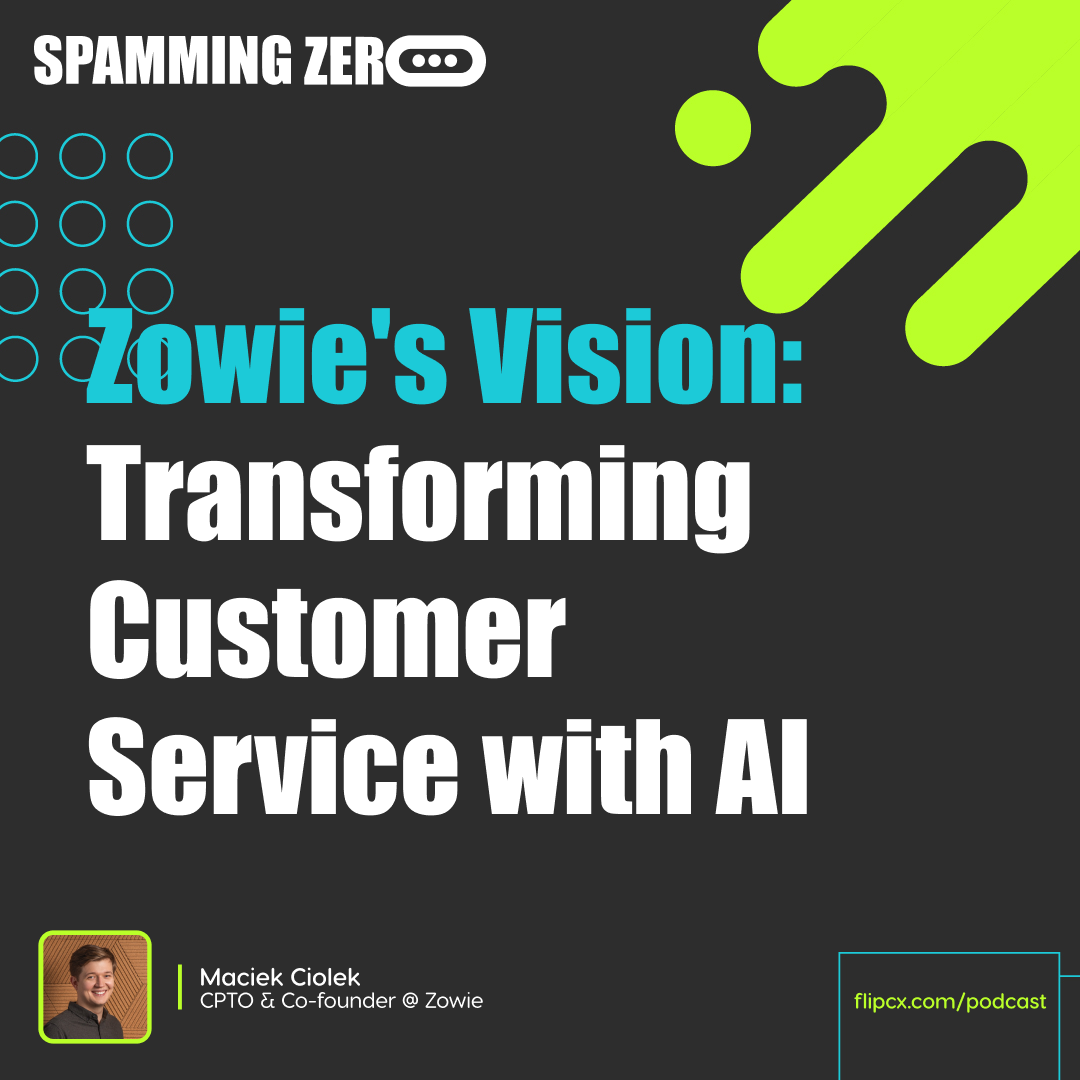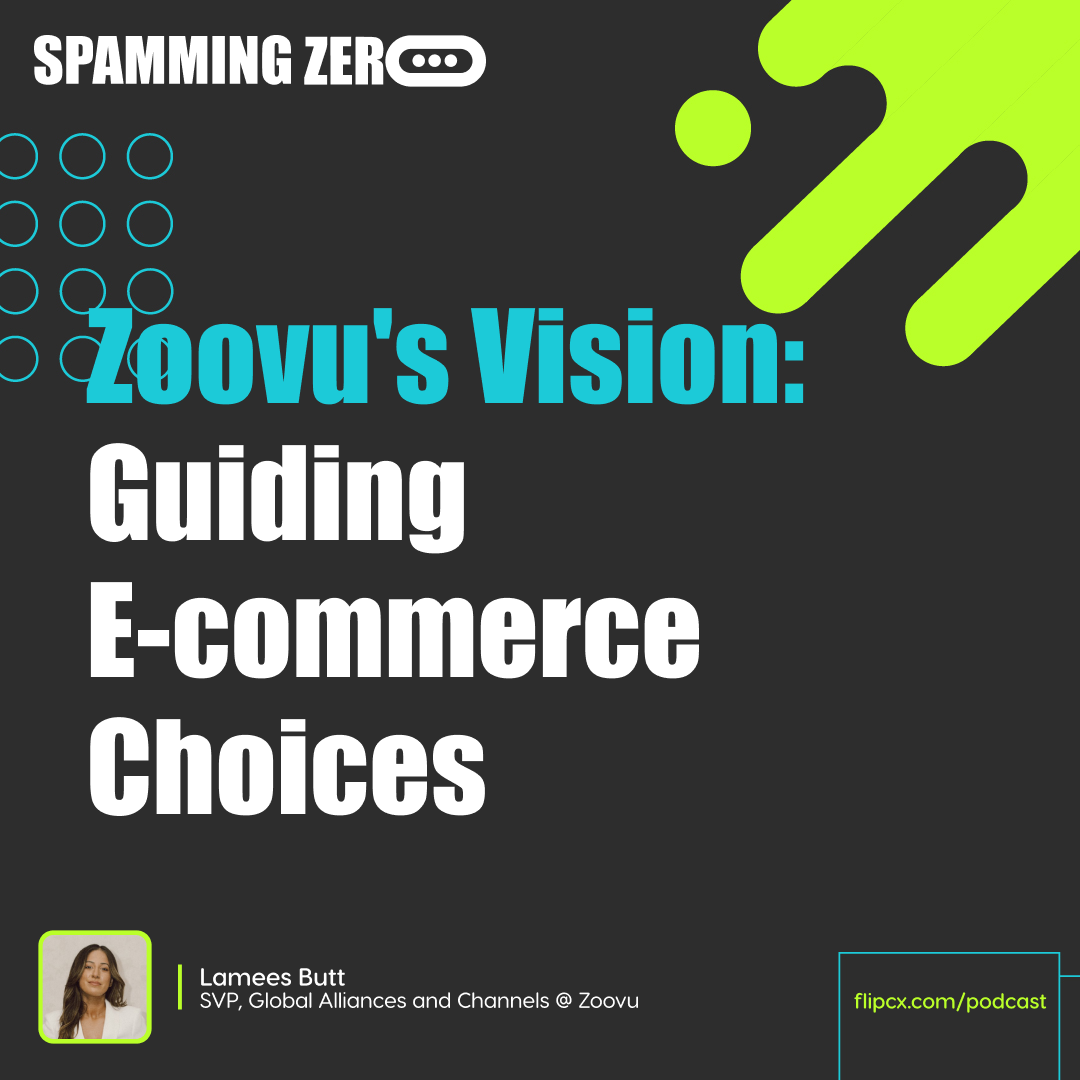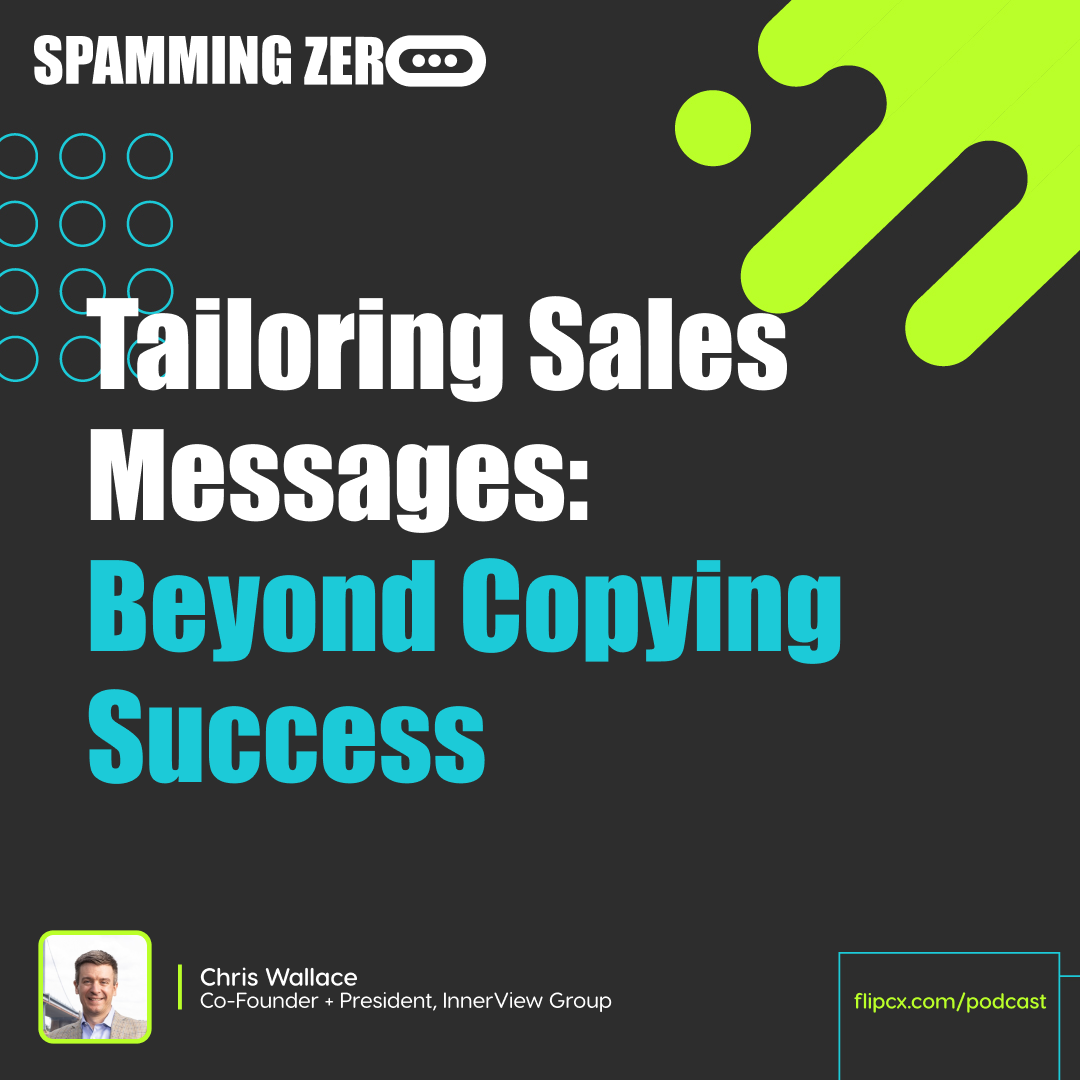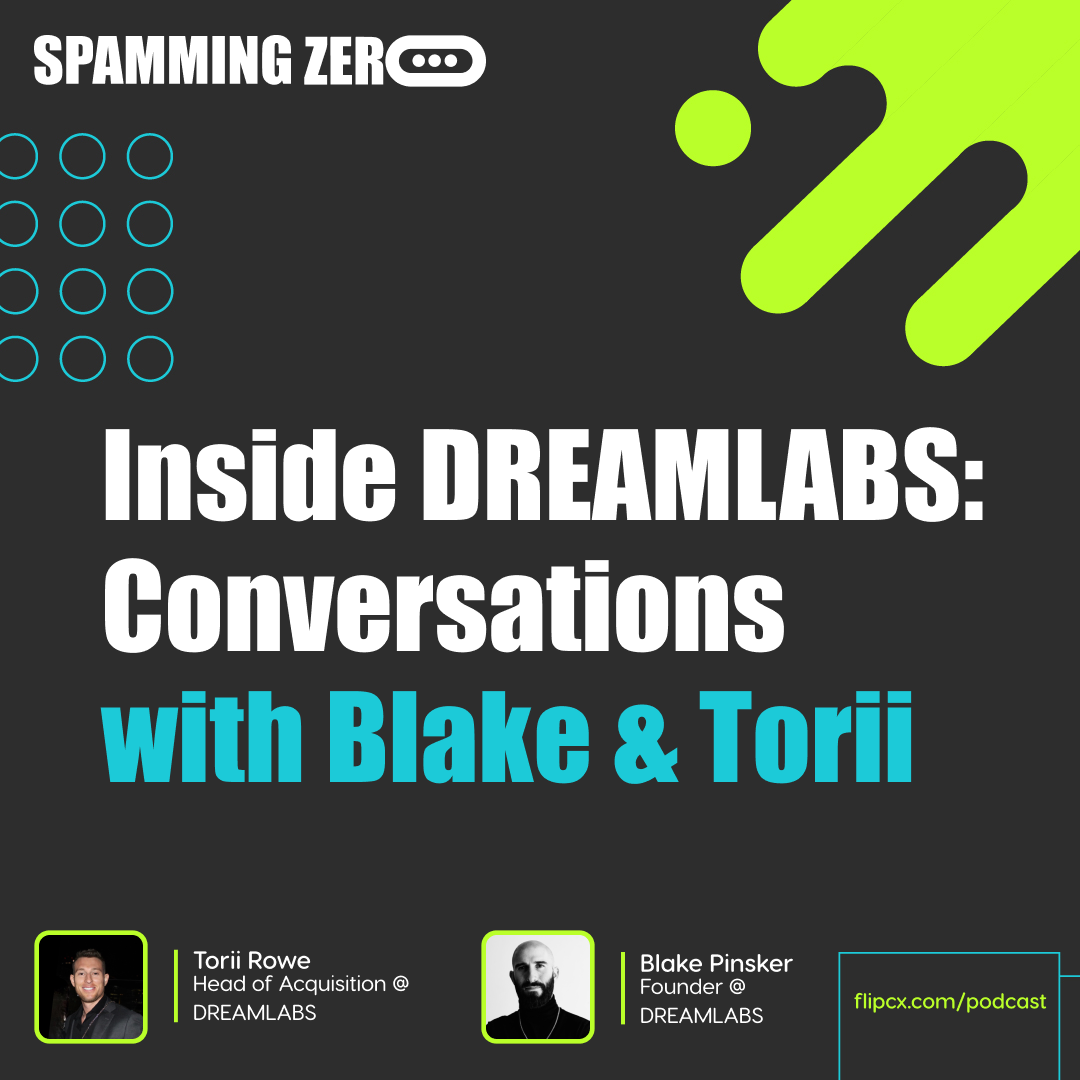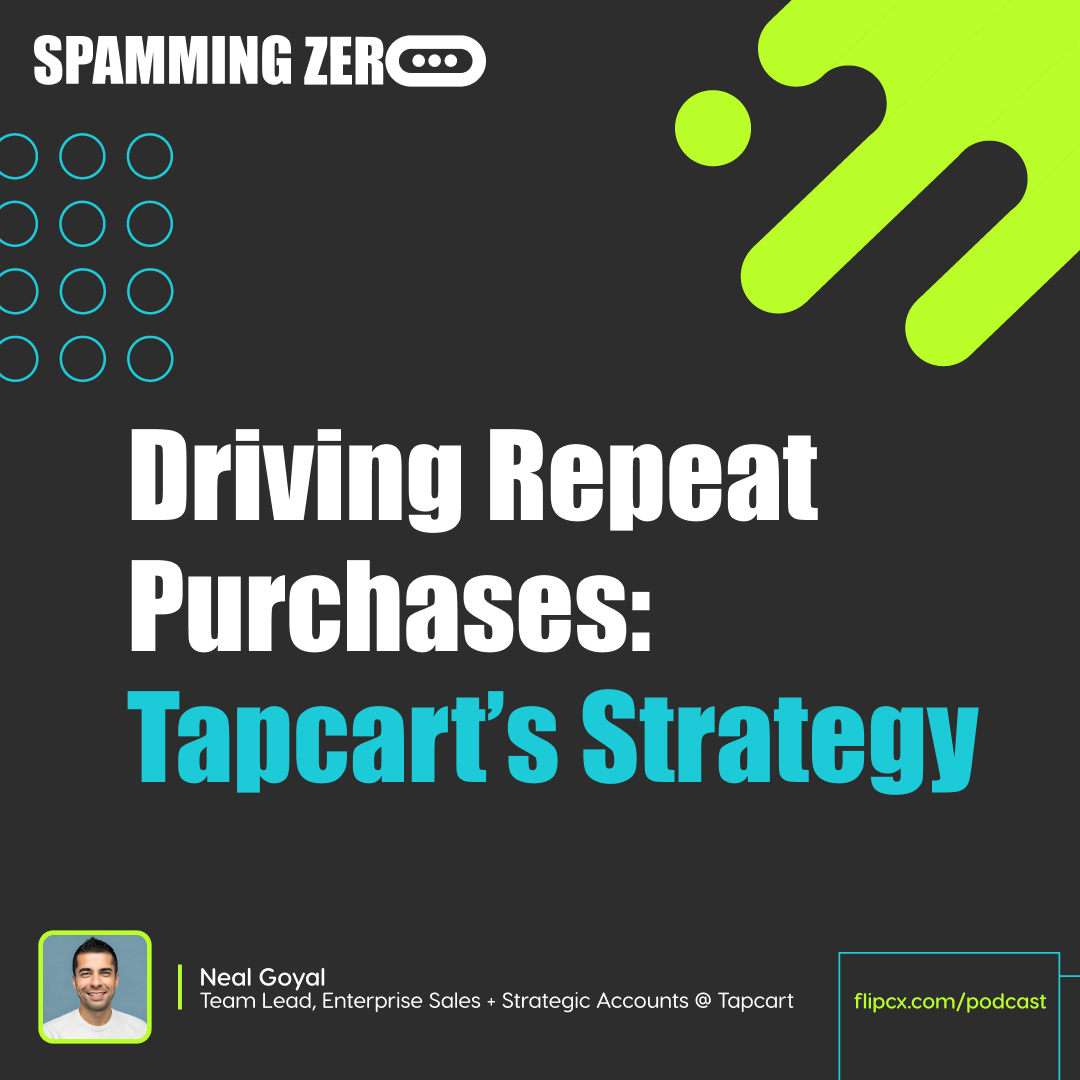Episode 12: Selfless Empathy In Your Customer Experience
- 0.5
- 1
- 1.25
- 1.5
- 1.75
- 2
James: I'm James.
Brian: And I'm Brian.
James: And this is Spanning Zero. All right. Welcome to the show. Taylor, thanks for joining us today.
Taylor: Happy to be here. Thanks for having me.
Brian: So excited for this, Taylor. Should be fun.
Taylor: To do.
James: We have the lovely Brian with us as well. Brian?
Brian: That's me. We're back.
James: We're here to dive into this topic of selfless empathy with your customer experience. Taylor, you and I have talked a lot about this particular topic in general but let's start off by getting a little bit of a hot take. What is just on your mind right now?
Taylor: Thanks, James. Yeah. So I've been thinking about this for a couple years and it's evolved into this idea of selfless empathy and empathy has... this concept has been very prolific in our culture. People talk about it all the time, being empathetic, put yourself in the shoes of your customer, put yourself in the shoes of the consumer, which I think is a great start. The problem with it is, you can use empathy to manipulate people and that's actually, I'm pretty sure, what the definition of a sociopath is, is somebody that can empathize with somebody else, put themselves in their shoes, but then they use that advantage to manipulate to then serve themself. And so, I've worked on this concept of selfless empathy as an idea of using empathy to serve somebody else and compassion, care, those other maybe, synonyms are also a way to think about it too and it's using that power of putting yourselves in somebody else's shoes to serve them.
Brian: I love the tacking on of selfless next to the empathy and drawing that distinction around everybody as consumers, they can tell. People can sense it. People can feel it. We've talked on the show about the gamification of companies' customer experiences that consumers will go through and it's like," Who are you really fooling?" There's almost something to be said that going fully and I guess, this is a lot of your point, going fully to the selfless end of the scale is actually what is going to be best for the business in the long run.
Taylor: Yeah. I could totally relate. The average company has 250 SaaS products. And so just looking at it from the SaaS world, people are buying constantly. Everyone's in buying mode all the time. So not only from a consumer level but then also from the business level, people are constantly buying new products. And so, they know the rigmarole. They know the spiel. They've experienced it so many times. And so if we can get outside of that usual," Okay, here we go. I talked to this person, I talked to this person, and it's this regular process," if we can put ourselves in their shoes and I think one of the biggest problems with people in business in general, marketers, sellers, product makers, customer service reps, all of our problems are that we're not the consumer. We're not usually the person buying the product. And so that's another problem where I constantly see where it's like, if you were a CEO of a mid- size company and somebody is, let's say, giving the example of cold calling into the CEO, you'd probably change your tactics if you were to go on LinkedIn and you were to reach out to the CEO on LinkedIn. You probably would change your tactics if you were to see the LinkedIn of that CEO. If you go on that CEO, I know my CEO has... he doesn't even manage his own LinkedIn because he gets hundreds and hundreds of messages every day. Whereas the SDR-
James: Side note for Brian.
Taylor: Maybe didn't know... yeah. Right. Yeah.
Brian: I was going to say, for the record on the show, I do manage my own LinkedIn, just putting that out there.
Taylor: Nice. That's awesome. Props, Brian. That's super cool and admirable and you probably are a little bit sick and tired of all the cold messages and cold messages you receive. The SDR doesn't experience that though. The SDR on the other end is like," Well, no one..." I mean, no offense to SDRs. I've been in that role before, but no one's selling them on something. So they actually haven't experienced on the other end of it. So don't mean to go on a tangent but that's a side example of-
James: But you bring up a really good point here and that's when it comes to the customer experience, there's not enough emphasis and ownership put on sales to create a better experience. I genuinely believe that across the board, almost with any company, they're held to a quota and they're also held to metrics that are against not just a revenue number but actual metrics like call metrics, how many people they need to email in a day, all that stuff actually can harm the customer experience. And while it's necessary to track and understand progress of the business, then you get caught into this habit. And I saw post the other day of this constant iteration of," Okay, well now we need to hire more reps. And now we need to do this to try to hit a revenue moment." And you get caught in this constant flow of having to do something that could potentially be harming your customer experience. A really good example of this, it's a marketing example.
Brian: Surprise, surprise.
James: Right?
Brian: Very off Brian there.
James: Yeah, totally predictable. Which I have found to be really, really effective. There is a company out there called Lume Cube. Taylor, I'm sure you've heard of them?
Taylor: I have one of their lights right now in front of me.
James: All right. So here's what's crazy. They reach out to people, no strings attached. We're going to send you a Lume Cube. That's their message. Do you know how many people have promoted that organically on LinkedIn? Hundreds. And they've had to do almost nothing, but send a Lume Cube.
Taylor: Brilliant.
James: It sounds so simple, right. But why am I bringing this up? In a world full of noise, you have to do these unconventional things. And anybody else in the business would tell you that is not a good move from a profitable perspective, because how you're going to track it? What if you don't get them to return? What if you don't get them to actually share it? What if they just take the gift and that's it? What if? Right. The big what if that drives business decisions is part of the problem.
Brian: You can almost broaden that, just going one baby step to... somebody can hear about a business or a product in so many different ways. And those are not all treated different. There are amazing ways to learn about something new, which predisposes the person to having a strong reaction to it and liking it even before they know what it is, anything about it. Just based on how that initial touchpoint happens and not to be sitting here putting SDRs on blast or anything, but getting the cold call or getting the pitch slap on LinkedIn or whatever you want to call it, versus what you're describing where unconventional, out of box, new experience, product shows up, those are just opposite ends of the spectrum.
James: I've had many businesses... this is a true story. Many businesses have sent me a Yeti cup or...
Taylor: Hate that.
James: I'm telling you, I have a whole cupboard full all of this shit. Okay. And if you send me a Yeti, it's game over. I won't talk to you again. Right. So you also have to got to think out of the box. Lume Cube I think did this really, really well because they're like," I mean, we have a product and we want to get the product out there." So what do they do? They send their product." Hey, you know what? Why don't you try it out? You're a podcaster. I haven't set it up yet, but it's literally right there on my floor." Just-
Taylor: And you're talking about it on a podcast. I mean, what a great getting that publicity-
James: Organic.
Taylor: Yeah.
James: But this comes back to exactly what we just talked about and that's the selfless empathy part.
Taylor: Totally. And the price point. I mean, you think about it. I have a lot of theories and ideas here. It's a great, great subject as far as sending out, because I mean, it probably costs them 10 bucks to manufacture their lights, so the price point, 10, maybe 20 bucks at most, I bet to manufacture their lights. So the price point is, I mean the amount of marketing it takes to get your attention from a number standpoint, I bet they've clearly seen an ROI and to Brian's point, standing out. Right. I think the biggest problem with marketer, sellers is that we're our worst enemy. We see an idea that somebody else has done and then we ruin it for everyone else. I'll be honest. Five years ago, I was sending out messages on LinkedIn because no one else was doing it and it worked. But now five years later, sending a message out to try to make a connection is way oversaturated. I also think too, when it comes to the types of businesses, the businesses that have the best customer experience, I've noticed a trend. They're in very highly competitive industries. So you look at Amazon, I mean eCommerce, retail, you look at Apple, computers, smartphones, very highly competitive. Zappos, shoes, super competitive industries, Nike, I love Amazon as a great example. I've only purchased one product that Amazon makes. The Kindle is probably the most notable product they've made, but Amazon has a hundred million dollars worth of revenue. And yet they really don't make anything. They're actually just a customer experience platform. They create amazing customer experiences where it's super easy to get refunds, super easy to chat with somebody, the fastest chat in the world, I think when you have an issue. And everything is around customer experience and creating a platform where it's instant gratification. And that's actually another thought too. I think in 20 years, especially with millennials, Gen Z, the iPad generation, I had a great anecdotal story. It was actually at the height of the pandemic and my nephew... this is when everyone was ordering things from home, no one was buying stuff. My nephew comes into the room and he is like," Hey, Amazon is four stops away for the thing we're waiting for." And I remember just having this surreal moment where I'm like," Wait, wait, hold on. What did you just say? Amazon is four stops away?" He's tracking Amazon's delivery and they're four stops away. And the future generation I know for me, I am so impatient when it comes to immediate gratification. So to your point, Brian, as far as the Lume Cube and getting that immediate value and actually something tangible quickly, I know 20 years down the road and I think the reason why I think especially SaaS platforms, the reason why they can get away with, to your point James, as far as sales being... sales and marketing, especially in SaaS is primarily all about scalability. Billion dollar companies spend 60, 70% of their revenue on sales and marketing. They have so much profits that they can just dump money into marketing. They don't care about experience. They care about scalability. The problem with that is 5, 10 years down the road, we've seen this increase in competition in SaaS products and products in general in technology that unless you increase your experience like a lot of maybe eCommerce platforms like Amazon or retail brands or hotel platforms or Airbnb platforms, unless you increase your experience, you're going to fall behind. Somebody's going to come in and create an equally as good product, but an amazing experience and put you out of business and take your market share.
James: It reminds me of sort of the convergence of these generations of experience that are occurring right before our eyes. And the Amazon era was the convenience factor. We could have things at our fingertips and convenience is being amplified. This is so crazy because when I was going to college, I remember the idea of grocery delivery being something that people wanted and they needed. You fast forward, holy cow, 20 years almost?
Brian: Dating yourself.
James: Until it actually happened. But everyone wanted that, because that was a convenience revolution. Shep Hyken wrote a book about this stuff. It's all about convenience. That's why Amazon started their business. And Amazon actually became more of a channel of activation for these big brands so they could have a place. They already have an e- commerce store. And Amazon just became another channel that you could access their product in a convenient way. You have Prime, two day delivery. It's at your doorstep. And during holidays and peak seasons, what happens? Volume goes up and those deliveries became a problem. So during the pandemic, what happened is everyone was pissed. It wasn't Amazon's fault, but everyone was pissed because they couldn't get their stuff.
Brian: I love the Amazon example. And I love you framing Amazon as an experience provider, even more so than actually being a retailer. I think that's gold, but also Amazon is famous for being customer centric. That was their MO from day one and they started out as customer centric. That was the goal, or the north star or the motivation. And then the first actionable thing that they did that they prioritized was this idea of convenience. And everything was about one click checkout, two day delivery. So it's interesting that when they looked at a north star of customer centricity, the first or one of the first actionable things that they landed on was this idea of convenience. Across the journey, starting all the way... presale, they were the first to have those recommendation engines where it was showing you products that you might like to make that a more red streamlined experience.
James: So you have this convenience factor converging with now everyone wants validation on things. So they then converge to that into their product lines. And now you have the customer reviews. I don't know a single person that goes to Amazon and doesn't look at the reviews. Everyone looks at that stuff. And then they go deeper. They look at the actual text of what people are saying. They look at the FAQs, they look at the questions. Is this size going to fit my son? Is this size going to fit my daughter? They think about those things. And I think that's also the convergence of the convenience factor that's happening, but it's also the validation that's happening. And it is a little bit of this selfless empathy coming back to our topic where they really are putting themselves in the shoes of how people buy. I think the more that we can do that, I know it's easier said than done, but it's such a simple thing to just think about. If you were buying the product or if you were going through the experience, how would you want it to be for you? Be a customer.
Brian: The Airbnb CEO, I'm pretty sure either last year or this year or something to use the Airbnb example, I'm pretty sure that he just declared that for six months he's going to go and be a customer and he's going to live and work in all these Airbnbs around the world. So somebody at least given it inaudible try to do that.
Taylor: Great example. Well, the thing that's made me the most successful in my career in marketing and sales and go to market strategies has been, I'm an extreme hedonist at heart. And from that consumer standpoint of like," Hey, what is the easiest, most pleasurable way to experience this product or service?" And I might just be super lazy actually at the end of the day. But I think tapping into that, James, as you're saying, tap into that power of putting myself in their shoes, actually experiencing the product, trying the product. I think it's hard when you have a product that you're not... for example, I work in an industry where our customers, our clients are CPAs and accountants. I'm not a CPA or accountant. So I have to work really hard as a marketing leader to put myself in their shoes. I talk to them to build relationships with them. I literally listen to their podcast. I read their news outlets. I follow the news. Whenever there's something accounting related, I follow it, just to understand, hey, what's going on in their head? What as trends and things flow-
James: But Taylor, I genuinely believe that's more than what most people do.
Taylor: It's work. I mean, it is work and it's not something I'm naturally gravitated towards. But once I've seen the outcomes of it, when I'm actually able to position my messaging, you learn so much. It's fascinating what you learn. Strategic partners, I listen to podcast of my industry. Then I hear the ads on those podcasts and I'm like," Oh, that's a company I've never heard of. And they're marketing to our vertical." Then we reach out to the CMO or the VP of Marketing to build a relationship with them. I did that last week. So it's amazing all the ripple effects of things you learn. Back to your point, James, on the reviews on Amazon. So I got a super hot take for you guys here.
Brian: Let's go.
Taylor: I've been working on this concept. So as a marketer, and as I've been a business owner, I've been a marketer, I've been a seller, we all know that word of mouth is the most powerful attribute in marketing and growing your business. And we know that when you get a referral, 5, 10 times more likely to close. The lifetime value is higher. The sales cycle is faster. And so we all know we want more word of mouth. And actually it's funny. I remember I was at a cocktail party at my neighbor's house, three or four years ago. And my neighbor says, she says," Amazon reviewers, they're the secret heroes of our society because no one..." I mean, I've probably left maybe one Amazon review in my entire life. Maybe not even that. I don't even remember leaving one. I don't know about you guys, but I don't know anyone that leaves Amazon reviews. And that's actually part of the problem of reviews is, we all buy in and now I'm going to get a little existential here, we all get referrals from people that are in our" tribe." If it's somebody that is unlike me, is not maybe the same types of personality or same types of desires or interest, and they give me a referral or recommendation, I'm not going to take that with weight. If it's somebody like my best friend or my dad tells me," Hey, you need a lawyer. Go call these people," I'm going to listen to my dad way more. So I have a vision for the future when it comes to reviews, that reviews will be community based when you go on Amazon, you'll see your entire community of folks that you're connected with, family members, colleagues, and you'll see the reviews, the products that they love, because that's how we buy. I guarantee you, I don't know the numbers. But we buy so much of the products and services based upon recommendations. Reviews are part of it. But the problem with reviews are they're probably 50% they're inaccurate, honestly. Even on Amazon, I get a lot of times I buy something that has great reviews, but the product is crap. And there's flaws with word of mouth as well. It's not always perfect. But we see this huge trend of people leaning into communities, Pavilion, all these communities, that I'm a part of and I love, and I'm constantly on there all the time. Hey James, that's how we got connected through the PEAK community. And I remember you gave me recommendation for marketing planning software that I looked into because of you. So to your point Brian, there's so much marketing out there. On an average day, I think it's about 5000 ads people are presented every single day. 5000 ads, that to stand out, people are leaning back into word of mouth because we're just inundated. And I love all the futuristic shows. I'm a sci- fi junkie and especially psychological dystopian worlds. And you'll notice all of in the future, they always portray ads as there's ads everywhere. And there's all this stimulus. And I forget the show I saw on Amazon Prime, that was an afterlife show. And in the afterlife they're in in the cloud and you had to watch a certain amount of ads to then get currency to then go spend it in the afterlife. And it's very hyperbolic, but it's a great truism in the fact that we're so inundated with ads. How can we get back to word of mouth? Especially in this kind of situation that we're in now with a potential recession and kind of a market correction that we're experiencing, customer marketing, word of mouth advocacy, expansion, retention, all those things are gold, especially when you're in a highly competitive market or competitive industry. But just in general, your best ROIs can be leaned into those things. And reviews are part of that. But I think the next level is how do we tap into community? How do we tap into the psychological element of tribalism, where we all live and a lot of our decision's based upon what our community says and lean into that? So there's my hot take for you.
James: I do think some industries are leading that. And I think one of them is e- com. They do do this. They have the, what I would call more like a consulting firm that runs their operations, their business operations. And that becomes sort of this ecosystem that exists across all their partnerships. And that's totally community driven. It's something Brian and I are talking about all the time because a lot of our customers are in e- com. And I think that there are industries that are leading the charge there. So I don't think you're far off at all, Taylor.
Taylor: I can't be the only one thinking of this. And I know I'm not. There's definitely industries. I think the most competitive industries, they have to evolve. I've worked in industries. For better or for worse, I've worked in very competitive industries, financial services, managed IT, accounting. I've worked in eCommerce and very competitive industries. And as a marketer, as a seller, as a go to market leader, I've had to be very strategic. I've had to use marketing, selling as a competitive advantage. How do we differentiate ourselves in that marketing process? Not just our product has to be great and gold, but also as we deliver our product and that experience and things are only going to get more competitive. I think as we've... the golden age of SaaS, the golden age of technology, I think it's over. I think we've hit this plateau where we've saturated our market with so many tools, so much tech that yes, augmented reality, metaverse, there will be new aspects to that and new ways people can evolve and create new products and be a new category leader. But in a lot of ways, I think we're just now different versions of the same thing I'm seeing. There's definitely aspects where there's industries that are new and evolving new category. But in general, the golden age of being able to spend 60 to 70% of your revenue on marketing and sales, I think is over.
James: That is a hot take.
Brian: It's interesting. People have talked forever about when you're starting a company, the idea of product differentiation. And that has been this gold standard. And it is a look at a," Hey, I started a business and I want to pitch the business and what are the slides that I need in my pitch deck?" And one of them always is product differentiation. And I wonder whether there will be this evolution or addition or whatever, where experience becomes a recognized thing that you can differentiate based on.
James: I absolutely think that is something that is being weaved in. I think part of the problem is experience is really tough to measure. It's one thing to get a review, five stars. Another thing to get an NPS score. I'm going to seize that score. It's a whole another ballgame when you start actually aggregating that at a level that can actually drive business or heaven forbid drive lifetime value of a customer and look at a long term of how it actually impacts. Go back to 2014. 2014 was the span of when customer experience really started starting to boom. Software was being created specifically to measure it. And everyone heard about these one- off instances from airlines, from consumer goods of a single person having a bad experience, going to social media, complaining about it and the negative impact that it has on revenue. That is easier to measure for people right now than the positive impact of what really good experience does for an organization. And I think part of the future of the experience that businesses are going to weave in and try to figure out is aggregating the data that exists so that they can understand how it truly has a positive impact so that it can be the differentiator because Brian and I have talked a lot about this. Through recession, customer experience software, for example, is some of the very first cut. And if you think about it, it shouldn't be. It should be the opposite. The software that should be cut should probably be the marketing and the sales software. And what should be doing is you should be shifting your strategy to a customer retention program, because ultimately what is the cheapest and what is the most cost effective? It's retention. It is not net new. Every business owner and business operator knows that. But yet here we are in the world of business and you're seeing cost cuts happen at the customer experience level in almost all areas. We're talking about customer service agents, we're talking about their BPOs, we're talking about everything that's cut and it makes zero sense when you think about it, because ultimately the idea here is what keeps you alive is having a good experience with your customers, putting yourself in their shoes and creating this selfless empathy that we've been talking about all day today. That's what's going to be the differentiator.
Brian: Yeah. It's super interesting. On the recession point, so there's somebody that I personally really like on LinkedIn, Christopher Lochhead and he talks about everything going on with the recession right now and how the strategy needs to evolve to getting more from what he refers to as the super consumers. I think that's the term that he uses. But it's what you're talking about. It's these people that are already invested in the brand, invested in your category, whatever it is and really leaning into that and delivering experiences to those people. Two other things that come to mind to me when you talk about the measurement problem in experience differentiation, if we're going to kind go along that thread. One, we were talking just in the last couple of days and weeks about this tweet from a customer of Chewy that went viral, literally went viral where... and Chewy's famous for their customer service and their customer experience. And that is, you talk about the airlines example of a negative experience going viral. That is the opposite. That is a positive experience going viral. So that's number one. The second thing is I saw this thing kind of way back and what it said was true product market fit is when you have too many leads that you can't even possibly service. And I wonder if that same definition could apply over here. If we're saying that the benefit of the customer experience is the generation of these wow moments which fuel this word of mouth in communities and beyond, then the outcome really that comes out of the other side is all of this non- direct response, non- paid, non- BDR driven, non massive discount code, whatever it is. It's just inbound interest that's coming in. That's ultimately how it's" attributed." So I wonder if you really want to sell it at the top level and you really want to say that," This is what's driving the things that matter for the business." If you can sit there and say," Hey, we're getting... our CAC is next to nothing and we can't even fulfill all of the orders because there's more interest than there is inventory and blah, blah, blah," and you point not to some growth hack that was done, or even the growth hack is an experience hack.
James: We got to get Chewy on the podcast now because here's the thing. Yeah, it went viral. But now the question is, can Chewy tie that back to revenue? That single post, can they tie it back to revenue and say," This one post going viral, look how much our sales have increased." And the problem that they will run into, I guarantee it, is there's not a way to directly tie it back. It's an assumption. And that right there is where lies the problem, is the data that exists today is not actionable enough across these channels so that you can truly, as a business owner say," Yes, that is what drove it." Or" No, that is not a direct impact of what has happened." I mean, we all know this, everybody knows the guy, Chris Walker talks about this all the time on Dark Social. It's not measurable. But it is absolutely necessary to create demand to be there where people are consuming content and where people are engaging the most. And quite frankly, it is the social platforms.
Taylor: What's so interesting back to the kind of conversation around looking at, is it better to invest in retention or better to invest in growth? And it seems to me from a business standpoint, folks look at retention as, well, we can probably get by with less and we can cut our teams, cut our software, back to your point as far as customer experience software or teams, we'll trim it back. And you don't really experience that effect maybe until three, six months a year down the road. Take some time for customers to get upset. Do they actually churn? And it's that long term investment. Marketing is one of those things, marketing and selling is... well, there's a lot of industries, I actually have a friend that runs an advertising firm and advertising firms are notorious for being great at getting clients, but then also great at churning and having a high turnover. And it might be just the industry as well, just the prolific nature of or just the nature of turnover and people moving to new advertising agencies and whatnot. But you have this almost a wound that's not stopped bleeding. And you're like," Well, just take more medicine. Take more painkillers to numb yourself." That's the marketing analogy. I'm actually working on this analogy in real time here. So work with me here. But the idea would be to continue to take medicine, even though you're bleeding out and the bleeding out, the infection will take a long time to kill you. But if you keep taking the medicine, you at least keep that growth and fuel that growth in the short term. It just seems to me that they use marketing and sales as that silver bullet to go like," Well, as long as we grow, we'll be fine. And if we do churn, we'll have at least that growth." But as we know, marketing, getting new clients... costs so much to get new clients. And to your point, if we can retain them, grow them, and I know that's why, especially in the SaaS world, NRR is such an important measurement to look at the negative, how much are we churning, but also how much are we growing in kind of internal expansion, internal growth and focusing on ultimately, how do we keep, how do we grow? How do we make clients super happy? Because you can also the negative effects of... I think this all go back to psychology, the negative effects of somebody going on social media and saying something negative about you is so much more costly because we all have this pain avoidance bias. We seek to avoid pain more than we seek to gain pleasure because we all don't want to die. So we hear something negative, it's 10 times more costly than when somebody says something positive about us. That being said, people talking positively is still better than investing in traditional forms of marketing. And so obviously there's a lot there, but it's-
James: But you bring up a good point here. And that's the turning the retention lever into a growth lever. And that's I think the next phase of this stuff. It's some of the stuff that we talked about. It's turning your customers into a community driven growth engine. It's turning your customers into raving fans. So here's where I want to end the podcast. Taylor, you told me about an experience that you've had, you and your wife, about a vacuum company. And I want you to tell the audience the same story you told me on why you're a raving fan of this vacuum company and why you and your wife fight over it.
Taylor: Thanks James. Actually, I have an expanded story since the last time we talked as well. So my wife and I, we got for our wedding... somebody gave us a Dyson vacuum. And the Dyson vacuum is... Dyson in general is probably one of the most nonsensical products. And actually I've read this recently in the book called The Alchemist. I forget the author's name, but he uses Dyson as an example. But we've had the Dyson for a couple years now. And the Dyson vacuum is probably one of the most nonsensical products. It's like," Well, it's just a vacuum." And if anybody that owns a Dyson knows it's not just a vacuum. It's taken one of the most laborious, boring, redundant task we often do in our lives and makes it enjoyable. So my wife and I literally, she wins 95% of the time. We literally fight over who can do the vacuum. We want to both do it, because it's so enjoyable. And my mother came over a couple weeks ago and we were moving. She was helping us pack and I was like," Mom, have you..." She was like," What is that?" And she looks at our Dyson hanging over. And she's like," What is that?" I'm like," Oh, it's our vacuum. Have you used it before?" And her reaction, I wish I could picture her reaction when she picks up the Dyson and starts using, she's like," I have to get one of these." I told her the price point. And she was like," Well, actually I don't know if I..." It maybe a little too expensive, but I've literally... I'm such a fan of the product and their experience, I was like," I want to go buy their stock." And they haven't gone IPO yet. And it's a British company. But it's just amazing, a great example of even to your point, maybe Brian earlier about products that... they've taken a product that's... people have been making vacuums for what? 70, 80, 90 years? I don't know how long vacuum's been around. But they took it and they just made a great experience around it. And I think HubSpot's another great example of that. I used Salesforce for years and years and I've worked in mostly S& B companies. And I've worked for enterprise companies where you have a CRM admin or whatever. And I got to HubSpot. I'm like," Oh, they're not doing anything new. They haven't really created any new products. Nothing that Salesforce hasn't done." But they just made it easy to use. They just made it easy to implement. They made it so I could go just buy it off the shelf, implement it, I have no CRM experience and I could deploy all of their tools easily. I think the Dyson's a great example of that. HubSpot is a great example of that, of going into extremely competitive industries. Salesforce and other vacuum cleaners were the leading providers of their industry. And they came in, just made a really seamless, sexy process that made it... so it was enjoyable to vacuum and enjoyable to set up a CRM. Right. So.
James: I genuinely think that this is the next phase of experience for people. It's the ease of use. Not just software, but of genuine products that are out there. I think that it matters to people more than ever now. And that's a perfect example. I mean, we've given so many on this just one episode of how you really need to start thinking about fandom, is what I would call it, that customer retention and building selfless empathy is the key and the core to all of that. To build true fandom, that's where it has to happen. Taylor, thank you for joining us on the show. If you have not subscribed to the podcast, please do so. Give us a rating. We'd love to hear from you. Also, if you want to reach out to Brian and I to talk about a particular topic, or if there's a topic you haven't heard that you want to hear, let us know.
DESCRIPTION
We all like to consider ourselves empathetic people, right? But, when it comes to your CX strategy, how does that factor in?
Good questions deserve great answers, but not to worry... We found you a true expert to provide exactly that.
Taylor Wells is Senior Director of Demand Generation at Botkeeper. He brings a wealth of knowledge around what it means to offer selfless empathy in your customer experience – and why it matters so very much. This week, on RedRoute’s Spamming Zero Podcast.
What’s Covered?
- Taylor’s top-of-mind take on selfless empathy
- True ownership of experience
- Unconventional thinking that makes a world of difference
- The Amazon Era: all about the convenience factor
- The power of Community & Word of Mouth
- CX as THE differentiator
- Invest in retention vs. Invest in growth (How about both?)
- Some of Taylor’s own memorable experiences
- And more
Ready for more fantastic Spamming Zero conversations ahead? Listen, rate, and subscribe on Casted, Apple Podcast, or Google podcasts.
Today's Host
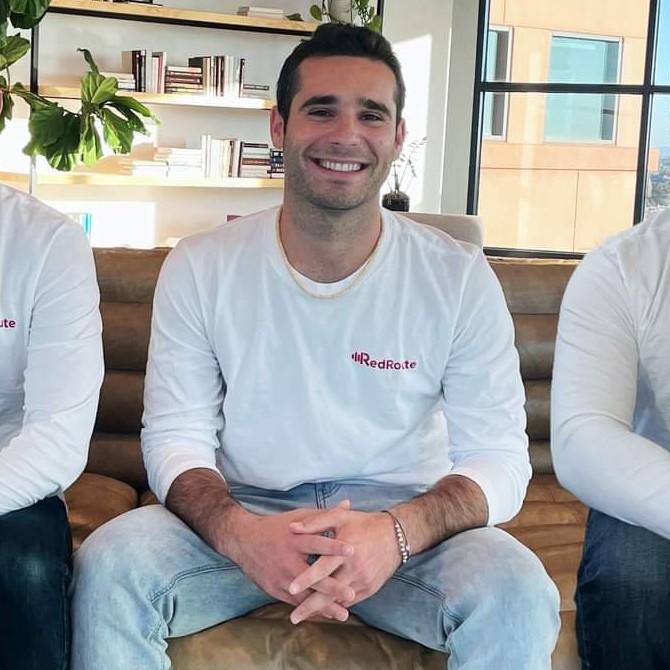
Brian Schiff
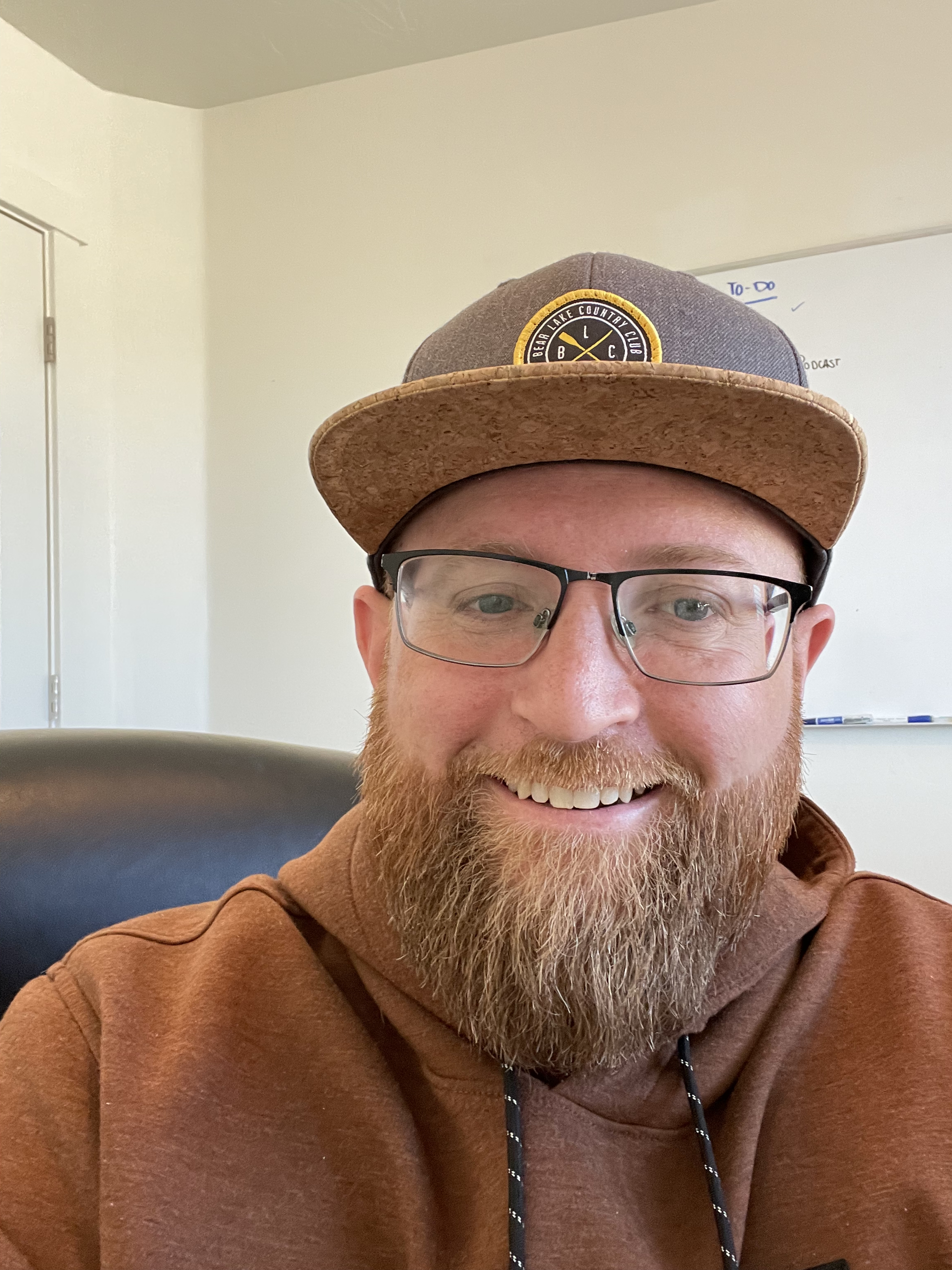
James Gilbert
Today's Guests

